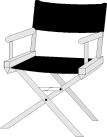 Director,
please
Director,
please Director,
please
Director,
pleaseQuestion (from Illinois): In a recent club game, my LHO opened 2D, which his partner explained as Mini-Roman (11-15 points with three 4-card suits). My partner, who has a tendency to make light overcalls, bid 3D and my RHO bid 3H. I asked LHO the meaning of 3H and was told that it showed a desire to play in hearts with at least 6 points and no upper point limit.
I held ![]() KQ1074
KQ1074
![]() Q105
Q105 ![]() 52
52
![]() A62. I assumed that
"no upper point limit" meant that the 3H bid was forcing, so I passed
to see what opener's rebid would be. To my surprise, opener passed. I called the
director, who ruled that opener's pass was allowed. We got a zero for this
result, as RHO had a 2-point hand and we were cold for +650 in 4S.
A62. I assumed that
"no upper point limit" meant that the 3H bid was forcing, so I passed
to see what opener's rebid would be. To my surprise, opener passed. I called the
director, who ruled that opener's pass was allowed. We got a zero for this
result, as RHO had a 2-point hand and we were cold for +650 in 4S.
Once opener gives me an explanation, does he have a legal or ethical (or both) obligation to not violate the agreement he described? Is he allowed to use my interest in the bid as justification for deciding to pass?
Stevenson: No, no such obligation exists. Your opponents are obligated to describe their methods accurately, but there is no rule they must follow them. Psychic bids are part of the game, i.e. deliberate and gross failures to follow methods. So are deviations, similar but not gross, and misbids, similar but not deliberate. This is unaffected by questions.
Follow-up question: Was I wrong to assume that "no upper point limit" meant that the bid was forcing? Did I have an obligation to press opener for a clarification?
Stevenson: The lower point limit makes the opponents' method suspect. If 3H could be done on 6 points, then I doubt he wants his partner to raise on 11. It would never occur to me to make any presumptions about a strange method. If he did not say it is forcing, you should not assume it. If you need to know you should ask a supplementary question.
Follow-up question: Should I have ignored the explanation (or not even asked for it) and bid 3S directly? Did my failure to do so affect the ruling?
Stevenson:
It should never affect a ruling whether you asked for an explanation. You will
only be denied redress if:
[1] There was no misinformation, so no infraction, or
[2] You committed an egregious error (e.g., passing was awful), or
[3] There was no damage.
[3] is easy, as it's clear that you might have done better. The only slight problem is whether you would have bid with a different explanation. In fact, I think your bid is tricky whatever. If LHO's shortage is in diamonds ,a 3S bid could get you -200 or -500. So you might need to convince a director that you would have bid 3S if you had known 3H was not forcing. However now you have [1] to come!
[2] is very easy. Your pass is not that bad.
[1] is a problem. Their methods are illogical and unplayable. So as a director, I would be very suspicious and ask a lot of questions. But if they are playing as they describe, I think you have no infraction, so the result stands.
Of course, 3H was a deviation, or even a psych, so I would have to be convinced it was not fielded. But if 3H is not forcing, and LHO (opener) was reasonably minimum, there is no problem.
My
best guess without being there is that one of three things have occurred.
[1] The players are very poor and are playing a convention with
little understanding. If so, accept your bad board. You will get many good ones
from them to compensate.
[2] The players have taken up a new convention without much
discussion, but they did agree to play it as they said without thinking it
through properly. Tough luck!
[3] The players have taken up a new convention without much
discussion, and do not really play it as they said. Now you have a case.
Do you have questions about bridge laws, a ruling you received (or made) at a tournament or club game, how to handle an ethical dilemma? David, who is very knowledgeable on North American bridge, will explain laws and proprieties, share opinions on specific cases and offer advice on any aspect of game direction. You can submit questions on his web form or by email to laws2@blakjak.com . In your message, include a note that you're an Advocate reader from the U.S.
David maintains an archive of articles on laws and proprieties on his web site: http://www.blakjak.demon.co.uk/lws_menu.htm